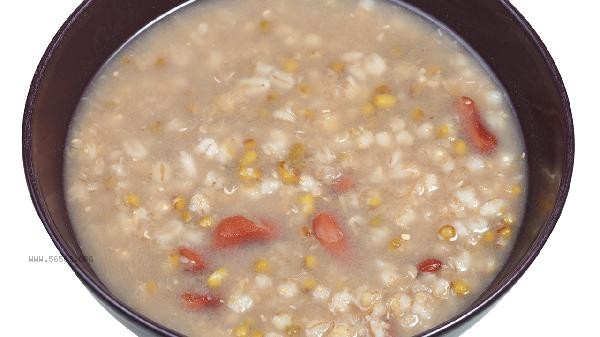Eating mung bean Congee will not gain weight in general. Eating it moderately will help control weight. Mung bean Congee is low in calories and rich in dietary fiber, which can increase satiety and reduce the intake of other high calorie foods. But if a large amount of sugar or high calorie ingredients are added and consumed excessively for a long time, there may be a risk of weight gain.

The main raw material of mung bean Congee is mung bean, which belongs to low glycemic index food. Every 100 grams of mung bean only contains about 120 kilocalories. Green beans have a high content of dietary fiber, which can slow down gastric emptying and help stabilize postprandial blood sugar levels. During the cooking process, mung beans absorb water and swell. A bowl of 300ml mung bean Congee actually uses about 30g of mung beans, and the heat is controlled at about 40kcal. Pairing with moderate amounts of miscellaneous grains such as oats and Job's tears can further enhance nutritional value, and this type of combination is more friendly to people who need to control their calorie intake.

Some cooking methods may increase the heat density of mung bean Congee. Adding white granulated sugar, brown sugar, honey and other seasonings will increase the calories of each bowl of Congee by 80-150 kcal, and long-term daily consumption may cause surplus calories. The ready to eat mung bean Congee sold commercially often contains starch thickener, and some products have high sodium content. Overconsumption of any food at night may affect the metabolic rhythm. It is recommended to use mung bean Congee as breakfast or afternoon meal, and avoid eating two hours before sleep.

It is recommended to choose sugar free original mung bean Congee as a substitute for staple food, and it is appropriate to eat it 3-4 times a week. When cooking, natural sweet ingredients such as pumpkin and yam can be used to reduce sugar addition. People with weak gastrointestinal function should pay attention to boiling mung beans until soft and tender. Maintain a diverse diet structure, coupled with moderate exercise, without worrying too much about the impact of a single food on weight. If there are abnormal blood sugar levels or kidney function problems, it is necessary to consult a nutritionist to adjust the dosage.








Comments (0)
Leave a Comment
No comments yet
Be the first to share your thoughts!